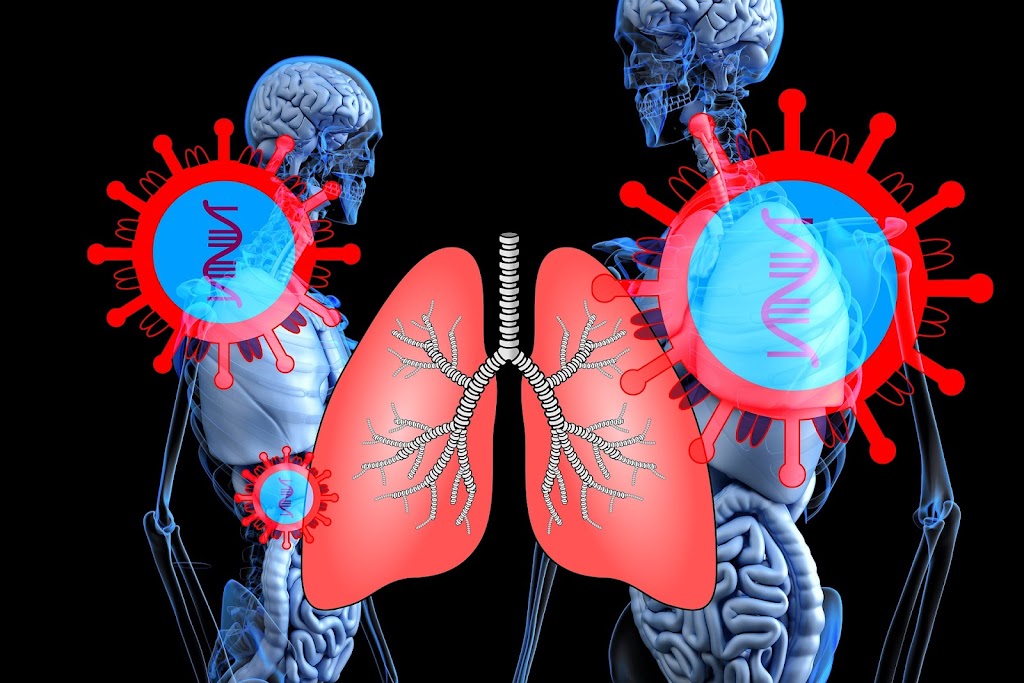Lung cancer | Health care | Medicine
Develop a new lung cancer medication that is more effective and has fewer side effects. Lung cancer is one of the most deadly forms of cancer, and it is on the rise. The good news is that there are many things you can do to reduce your risk of lung cancer.
One of the best ways to protect your lungs is to avoid tobacco smoke. If you smoke, quitting is the best thing you can do for your health. There are many resources available to help you quit smoking, so take advantage of them.
Secondhand smoke is also a risk factor for lung cancer, so avoid exposure to it as much as possible. If you can’t avoid it completely, take steps to protect yourself, such as wearing a mask or avoiding areas where there is a lot of secondhand smoke.
Radon is a gas that is present in the environment and can be a risk factor for lung cancer. You can test your home for radon and take steps to reduce your exposure if it is present.
Asbestos is another risk factor for lung cancer. If you suspect that you have been exposed to asbestos, talk to your doctor and get tested. There are many other things you can do to reduce your risk of lung cancer.
Eat a healthy diet, exercise regularly, and avoid exposure to toxins and pollutants. By taking these steps, you can help keep your lungs healthy and reduce your risk of lung cancer.
1. Introduce the problem of lung cancer and the need for new, more effective medications
Lung cancer is a devastating disease that kills thousands of people every year. There is a desperate need for new, more effective medications to treat this disease. Current treatments are often ineffective and have serious side effects.
New medications are desperately needed to improve the quality of life for lung cancer patients and their families. Lung cancer is one of the most difficult cancers to treat, and the current state of treatments leaves much to be desired.
While there have been some advances made in recent years, the overall survival rates for lung cancer are still quite low. This is due in part to the fact that lung cancer is often asymptomatic in its early stages, making it difficult to diagnose.
Even when it is caught early, lung cancer is notoriously resistant to treatment.
The mainstay of lung cancer treatment is still surgery, followed by chemotherapy and/or radiation.
Unfortunately, even when these treatments are successful in removing cancer, the disease often comes back. This is because lung cancer cells are very good at evading the immune system and developing resistance to drugs.
2. Discuss the current state of lung cancer treatments and their shortcomings.
There is still much work to be done in the realm of lung cancer treatment. Researchers are working on new ways to detect the disease early, as well as new treatments that may be more effective.
In the meantime, patients should be sure to get regular check-ups and screenings, as this is the best way to ensure that lung cancer is caught early.
3. Introduce the new medication and its potential benefits over current treatments.
Lung cancer is a leading cause of death worldwide, and new treatments are always needed. Recently, a new medication has been developed that may offer significant benefits over current treatments.
This new medication is called nivolumab, and it is an immunotherapy drug. Nivolumab works by targeting a protein called PD-1, which is found on the surface of some immune cells.
By targeting PD-1, nivolumab allows the immune system to better recognize and attack cancer cells. Nivolumab has been shown to be effective in treating several types of cancer, including lung cancer.
In one study, nivolumab was found to increase the overall survival rate in patients with lung cancer by more than 50% compared to the standard treatment. In another study, nivolumab was shown to be effective in treating a specific type of lung cancer known as non-small cell lung cancer.
This type of lung cancer is the most common, and it is usually resistant to standard treatments. However, in the study, nivolumab was found to increase the overall survival rate by nearly 35% compared to the standard treatment.
Nivolumab is a promising new treatment for lung cancer, and it may offer significant benefits over current treatments. If you or someone you know has lung cancer, talk to your doctor about whether nivolumab may be a good option.
4. Discuss the potential side effects of the new medication and how they compare to current treatments.
If you have lung cancer, you may be considering a new medication that is currently in clinical trials. While this medication may be effective in treating your cancer, it is important to be aware of the potential side effects.
The most common side effects of the new medication are fatigue, nausea, and vomiting. These side effects are similar to those of other lung cancer treatments, such as chemotherapy.
However, the new medication may also cause some additional side effects, such as diarrhea, constipation, and headaches.
It is important to speak with your doctor about the potential side effects of the new medication before starting treatment. While the side effects may be unpleasant, they are usually temporary and can be managed with medication.
5. Summarize the pros and cons of the new medication and whether or not it is a viable solution to the problem of lung cancer.
Lung cancer is a leading cause of cancer death in the United States, and the new medication, known as targeted therapy, offers a potential solution to this problem.
Targeted therapy is a type of cancer treatment that targets specific molecules or genes that are involved in the growth and spread of cancer cells. This type of therapy has been shown to be effective in treating other types of cancer, such as breast cancer and melanoma.
The main advantage of targeted therapy is that it can specifically target cancer cells and spare healthy cells. This is in contrast to traditional chemotherapy, which can cause harmful side effects because it indiscriminately kills both cancer cells and healthy cells.
The main disadvantage of targeted therapy is that it can be expensive. Additionally, targeted therapies may not be effective in all patients.
while leaving healthy cells unharmed. This means that side effects are often much milder than with traditional cancer treatments, such as chemotherapy.
Additionally, targeted therapy is often more effective at treating cancer than traditional treatments, and can be used in combination with other treatments, such as surgery or radiation.
There are some disadvantages of targeted therapy to consider as well. First, it can be expensive, and not all insurance plans will cover it. Additionally, targeted therapy can sometimes cause serious side effects, such as organ damage or bleeding.
Finally, targeted therapy is not a cure for cancer, and cancer can eventually become resistant to the treatment. Overall, targeted therapy is a promising new treatment for lung cancer, with many potential benefits.
However, it is important to discuss the pros and cons of this treatment with your doctor to determine if it is the best option for you.
We hope this article has been helpful! If there is anything else we can do for you, please let us know by liking or commenting below.
Read More:




Pingback: 5 Highest Calorie Weight Training Workouts - My Best Niches